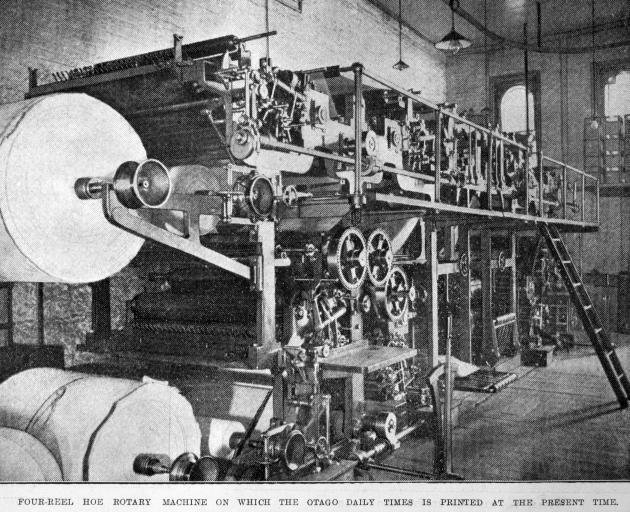
The Otago Daily Times celebrated on November 15 its sixtieth anniversary by publishing a diamond jubilee number, which will be cherished by good Dunedinites and friendly journalists throughout New Zealand. The paper was founded in 1861, and its original staff consisted of Mr (later Sir) Julius Vogel as editor, Mr W.H. Harrison, afterwards editor of the Wellington Independent and of the Grey River Argus and MHR for Greymouth, and Mr E.T. Gillon, who became Wellington correspondent of the paper, and was for a long period editor of the Evening Post in its early years.
The Times had a long struggle against adversity, and the story of its career as set out in the commemorative articles makes most interesting reading.
Sir George Fenwick was knighted last year when the distinction was personally bestowed by the Prince of Wales, who is among those who have forwarded congratulatory messages to the Otago Daily Times on its record of achievements. — The Evening Post editorial
Missionary’s plea for workers
At the annual business meeting of the Presbyterian Women’s Missionary Union, chaired by the Moderator of the General Assembly the Rev D. Dutton, Miss Henderson of the Punjab addressed the meeting, and spoke with an intensity of conviction that left a deep impression. She said she would take back to India from that meeting inspiration and encouragement that
would last long. She was first engaged in the work 25 years ago and she had noticed the deepest change since that time. There was a greatly increased interest in missions and she believed they would go on till they had won the heathen in all their fields for the Lord.
When she came to them before she had no such message of hope and cheer as she was able to bring this time. For 16 years she had laboured in the city of Madras, and only four converts were made among the caste people at that time, although there was among them a band of 60 men and women missionaries deeply devoted to the work of God. Now she came from a land where the people were turning to the Lord in thousands — men and women who for centuries had tasted to the dregs of all the bitterness and persecution they could have heaped upon them, but men and women on whom the spirit of God was descending.
No field in the world could show such things as were to be found in this part of India now. When she was told to come home on furlough she absolutely refused. Today she did not feel much more satisfied. She had laid the case before the people in many places and had been sympathetically heard, but in most cases she could only say that they had failed to grasp the urgency of the situation.
She had pleaded with the young women in our churches already trained to determine before God if He was not calling them to go out to India, but as yet, there had not been a single response from anyone ready to go.
Southland rat plague
A plague of rats has been experienced around Waianiwa recently, and farmers in that district have been taking active measures to eradicate the rodents. In conversation with one settler, a Southland Times reporter was informed that in two days he had exterminated over 100 rats, and other settlers around him had been equally successful in reducing the numbers of the destructive pest. — ODT, 18.11.1921.












